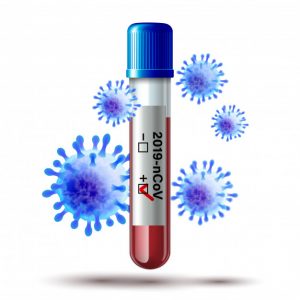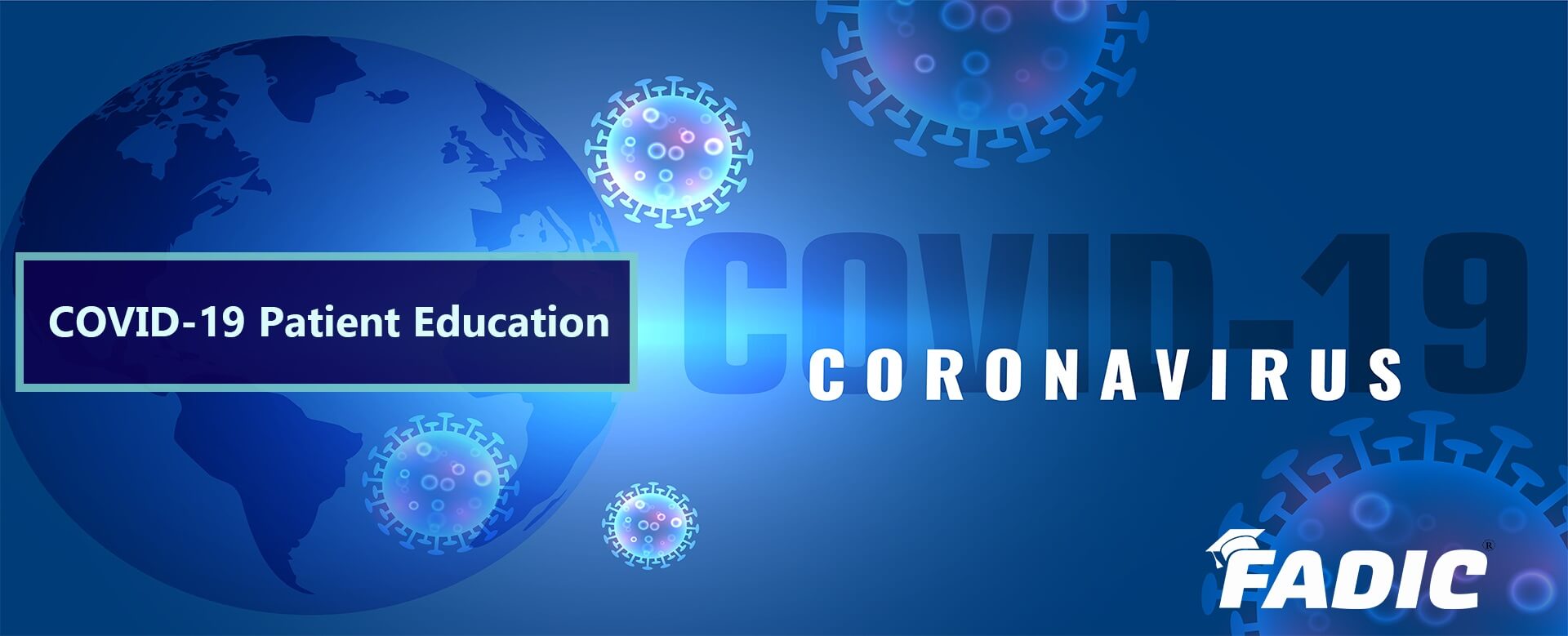COVID 19 Patient Education
COVID 19 Patient Education
By/ Rasha Abdelsalam
Everything you want to Know about COVID-19– Coronavirus
It is essential to provide the COVID 19 Patient Education properly
Introduction
- COVID-19 was first identified in December 2019 in Wuhan, China. The disease is caused by a beta coronavirus named SARS-CoV-2.
- COVID-19 usually causes mild to moderate respiratory illness.
- Most cases are mild. Few issues have resulted in severe illness or death.
- This is mainly among people with weak immune systems, those with chronic health problems and the elderly.
- Additionally, COVID-19 has been declared an international public health emergency.
- This reference summary explains COVID-19.
- It discusses its symptoms, treatment options and prevention methods.
Symptoms
COVID-19 usually causes mild to moderate respiratory tract illness. Most cases are mild.
In some cases, severe illness or death can result.
This happens mainly among people with weak immune systems, chronic health problems and the elderly.
Symptoms may include:
- Cough.
- Fever.
- Difficulty breathing.

- Some patients with COVID-19 have other symptoms or no symptoms at all.
- COVID-19 can spread from person to person through talking, sneezing or coughing.
- COVID-19 can cause respiratory tract illnesses, such as pneumonia.
- This is more common in people with cardiopulmonary disease, weakened immune systems, and the elderly.
- Symptoms usually happen about 2 to 14 days after contracting the virus. People with active symptoms of illness are contagious.
- But it is unknown how long a person may be contagious before or after symptoms appear.
- People who do not have symptoms can still spread the virus.
- Call your health care provider if you develop symptoms within 14 days of visiting areas where there is an outbreak.
- If you were exposed to someone with COVID-19, tell your health care provider.
- Call ahead before going to the health care facility so they can take steps to keep others safe.
Diagnosis
- If you think you have COVID-19, call a health care provider right away.
- Additionally, to protect others, call the office before you visit.
- Some public health websites have symptom checkers to help people decide whether they need to seek medical care.
- Your health care provider will ask about your symptoms, personal and family medical history, and recent travel.
- Moreover, they will also perform a physical exam. Laboratory tests can help confirm the diagnosis.
- You should wear a mask before entering the health care facility and while you are there.
- Finally, you should also wear a mask around other people.
- Follow any instructions your health care team gives you.

Treatment
- many treatments are being tested for COVID-19.
- Supportive care can help ease symptoms.
- This may include medications and breathing support for severe cases.
- Most people recover on their own.
- Using a room humidifier or a hot shower may help ease coughing.
- If you are sick, stay home and rest. It would help if you also drank plenty of fluids.
- Stay away from other people.
- To keep others safe, don’t leave the house except to visit a health care provider.
- People with the following warning signs need emergency medical care right away.
- This can help prevent serious problems or even death.
- Blue face or Chest pain or pressure that does not go Difficulty Sudden If a person cannot be awakened, seek emergency medical attention.
Prevention
There are currently no vaccines available to protect against COVID-19. Avoid travelling to or from parts of the world where there has been an outbreak.
If you are sick, you can protect others by:
- Avoiding close contact with people and Covering your mouth and nose when you cough or
- Keeping objects and surfaces clean and Staying home while you are. Wearing a mask around others and using a separate bathroom and bedroom if possible.
When you are around people who are sick, you should:
- Firstly, avoid close contact with
- Secondly, avoid touching your eyes, nose or
- Then, avoid sharing food, drinks or household items with someone who is
- Wear a mask if the person who is sick is not able to wear
- If you are not sick, follow the recommendations of local authorities on whether you should wear a mask.
- People with weak immune systems should ask their health care provider if they need a mask.
- Everyone can help prevent infection by washing their hands often with soap and water.
- If soap and water are unavailable, use an alcohol-based hand sanitiser with at least 60% alcohol.
Symptoms of COVID-19
Symptoms happen about 2 to 14 days after coming in contact with the virus include:
-
- Cough.
- Fever.
- Difficulty breathing.
- Some patients with COVID-19 have other symptoms or no symptoms at all.
- Call your health care provider if you develop symptoms within 14 days of visiting areas where there is an outbreak.
- If you were exposed to someone with COVID-19, tell your health care provider.
- To protect others, call the office before you visit.
- many treatments are being tested for COVID-19. Supportive care can help ease symptoms. Most people recover on their own.
If you are sick, you can help protect others by:
- Avoiding close contact with people and animals.
- Covering your mouth and nose when you cough or sneeze.
- Keeping objects and surfaces clean and disinfected.
- Staying home while you are sick.
- Wearing a mask around others and using a separate bathroom and bedroom if possible.
When you are around people who are sick, you should:
- Firstly, avoid close contact
- Secondly, avoid touching your eyes and nose.
- Thirdly, avoid sharing food, drinks or household items with someone.
- Wear a mask if the person who is sick is not able to wear one.
- Everyone can help prevent infection by washing their hands often with soap and water.
- If soap and water are unavailable, use an alcohol-based hand sanitiser with at least 60% alcohol.
Summary
- COVID-19 was first identified in December 2019 in Wuhan, China. COVID 19 Patient Education is essential.
- Moreover, the disease is caused by a beta coronavirus named SARS-CoV-2. SARS-CoV-2 usually causes mild to moderate respiratory illness.
- Most cases are mild. Few issues have resulted in severe illness or death.
- This is mainly among people with weak immune systems, those with chronic health problems and the elderly.
- Finally, COVID-19 has been declared an international public health emergency.
- The important COVID 19 Patient Education is to avoid travelling to or from parts of the world where there has been an outbreak.
Reading Materials:
- Read the COVID-19 info graph from this LINK.
- Know the Important Role of Pharmacist info-graph, from this LINK.
- Download info-graphs of Role of Pharmacist in COVID-19 from this LINK.
- Important to download Now the Info-graphic of Patient Centred-Care, from this LINK.
- Recommended to download Now the Info-graphic of COVID Survival Guide, from here.
Read More:
- Subscribe Now to FADIC 2020 COVID19 Daily News (FNN) and Keep Updated.
- Check Now about Coronavirus Resource Information Center.
- Learn More about all What you need about Coronavirus
- Read More about COVID 19 Patient Education from FADIC
- Corona Virus Experimental Treatment from FADIC
- All That you need about Cornonavirus from Arabic Blog
- Learn More about Cornonavirus from Arabic Blog
- Buy Now FADIC® – Books to Learn More in Different Categories.

 Log in
Log in Sign up
Sign up
